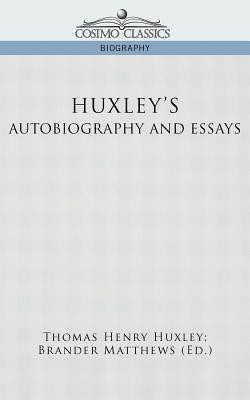
- We will send in 10–14 business days.
- Author: Thomas Henry Huxley
- Publisher: Cosimo Classics
- Year: 2006
- Pages: 288
- ISBN-10: 1596054050
- ISBN-13: 9781596054059
- Format: 12.7 x 20.3 x 1.7 cm, minkšti viršeliai
- Language: English
- SAVE -10% with code: EXTRA
Reviews
Description
As an intellectual giant of the 19th century, Thomas Henry Huxley was a pioneering genius whose influence was felt throughout the worlds of science, education, and politics of Victorian England. A man of astonishing energy and prodigious talent, Huxley had a sharp wit and a brilliant, inquiring mind. What he may have lacked in patience for tedious detail, he more than made up for in insight and intellect. Lovers of intellectual history may recall that Huxley invented the term "agnostic" to describe his own views. Generations of freethinkers are in his debt, given his codification of the agnostic concept into our language and unchained us from the limited concept of belief vs. disbelief-in and out of narrow religious contexts. This combination autobiography and essay collection, originally published in 1919, includes: . On the Method of Zadig . A Lobster; or the Study of Biology . On a Piece of Chalk . From the Hut to the Pantheon . On the Advisableness of Improving Natural Knowledge . A Liberal Education and Where to Find It . Science and Culture . On Science and Art in Relation to Education, as well as a chronology of Huxley's life and work. THOMAS HENRY HUXLEY (1825-1895), physiologist, anatomist, anthropologist, agnostic, and educator, is also the author of Evidence on Man's Place in Nature (1863).
EXTRA 10 % discount with code: EXTRA
The promotion ends in 22d.01:31:54
The discount code is valid when purchasing from 10 €. Discounts do not stack.
- Author: Thomas Henry Huxley
- Publisher: Cosimo Classics
- Year: 2006
- Pages: 288
- ISBN-10: 1596054050
- ISBN-13: 9781596054059
- Format: 12.7 x 20.3 x 1.7 cm, minkšti viršeliai
- Language: English English
As an intellectual giant of the 19th century, Thomas Henry Huxley was a pioneering genius whose influence was felt throughout the worlds of science, education, and politics of Victorian England. A man of astonishing energy and prodigious talent, Huxley had a sharp wit and a brilliant, inquiring mind. What he may have lacked in patience for tedious detail, he more than made up for in insight and intellect. Lovers of intellectual history may recall that Huxley invented the term "agnostic" to describe his own views. Generations of freethinkers are in his debt, given his codification of the agnostic concept into our language and unchained us from the limited concept of belief vs. disbelief-in and out of narrow religious contexts. This combination autobiography and essay collection, originally published in 1919, includes: . On the Method of Zadig . A Lobster; or the Study of Biology . On a Piece of Chalk . From the Hut to the Pantheon . On the Advisableness of Improving Natural Knowledge . A Liberal Education and Where to Find It . Science and Culture . On Science and Art in Relation to Education, as well as a chronology of Huxley's life and work. THOMAS HENRY HUXLEY (1825-1895), physiologist, anatomist, anthropologist, agnostic, and educator, is also the author of Evidence on Man's Place in Nature (1863).


Reviews